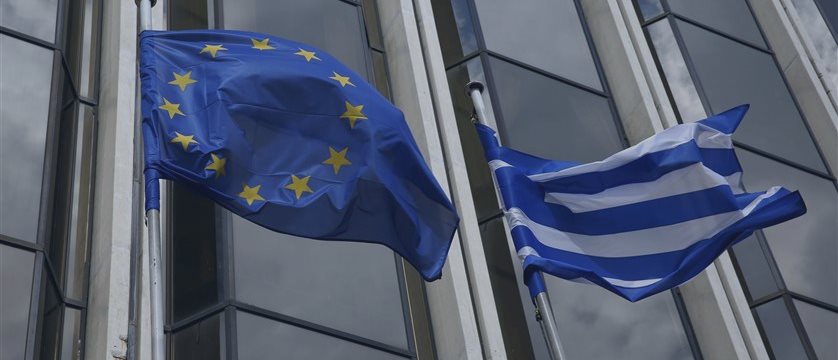The International Monetary Fund is working with
national authorities in southeastern Europe on contingency plans for a
Greek default, the Wall Street Journal reports.
It is a rare public admission
that regulators get ready for the potential failure to agree on
continued aid for Greece.
As part of the talks, the fund has asked national supervisors to ensure that subsidiaries of Greek banks have enough assets that they can exchange for emergency financing at their own central banks - if financing from their parent institutions is suddenly cut off - and that deposit-insurance funds are at sufficient levels, Decressin said.
For some of Greece's neighbours' financial systems, Greek banks are big players. In Bulgaria, for instance, subsidiaries of National Bank of Greece SA, Alpha Bank SA, Piraeus Bank SA and Eurobank Ergasias SA own around 22% of banking assets, roughly the same as Greek banks own in Macedonia. Greek banks also take an active role in Romania, Albania and Serbia.
Talks between Athens and its international creditors - the other eurozone countries and the IMF - have been dragging on, despite warnings from Greek officials that the government is close to running out of money.
On Monday, European officials expect no downright progress at a meeting of the currency union’s finance ministers. That means Greek lenders will remain under pressure, dependent on relatively expensive liquidity from the Greek central bank and at risk of bank runs in case doubts emerge over their ability to pay out deposits.
The IMF urged national supervisors and governments to keep a close eye on the situation. “There is high-frequency monitoring going on at the level of the
authorities and our advice is that this needs to continue,” Jörg Decressin, deputy director of the IMF’s Europe department, said.
However, the body generally considers that subsidiaries of Greek banks in southeastern Europe should be able to endure the failure of their parent companies (as banks in that region are fairly liquid and they have not seen major deposit outflow). As they are not branches, but subsidiaries, the lenders have to hold their own capital buffers and can refinance themselves at national central banks, thus, if necessary, it would make it easier to split them off from their parent banks.
The most disturbing thing for the IMF is panic which can emerge among population and spur people to pull their money out of Greek-owned banks, although those banks may be fine but people may be concerned about the Greek finances.
In the past, national safety nets have been fragile to rumor-fueled
bank runs. In June 2014, the Bulgarian government had to take over
Corporate Commercial Bank, after depositors pulled out their savings
amid negative news reports about the lender’s main shareholder. It took
the government six months to compensate the bank’s depositors, far
longer than the 25 days mandated under European Union law. After that, the Bulgarian government has taken steps to back its
deposit-insurance fund.



